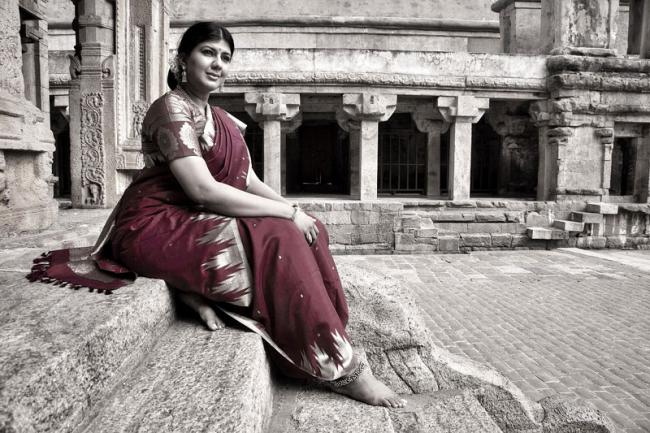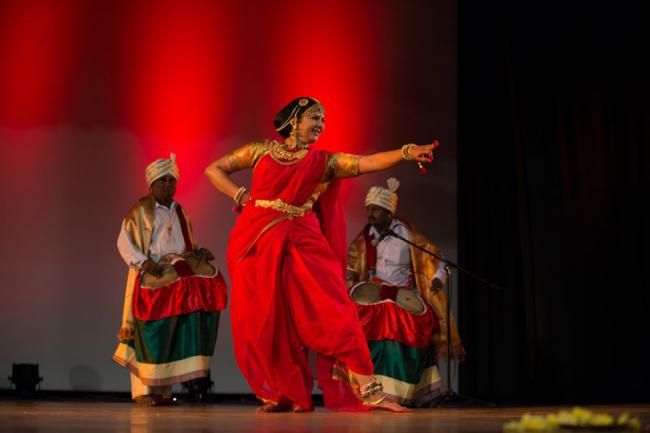
Fulbright scholar Swarnamalya Ganesh highlights the importance of combining art with education and research for a life of continued learning, finds SPAN writer Paromita Pain
She was only three when her mother took her to her guru, K.J. Sarasa. Swarnamalya Ganesh believes that’s what set her on the creative trajectory of dance. “Dance is a natural extension of my identity,” she says. “It defines who I am.”
Ganesh’s engagement with the art goes beyond the stage. She is involved in researching different dance forms of India, primarily Bharatanatyam and its origins in Sadir Natyam. After her doctorate from the University of Madras in Chennai, she had the opportunity to be a part of the Fulbright Program at the University of California, Los Angeles, minoring in world arts, cultures and dance.
Dance and education
Studying the art of dance in India, centered around Bharatanatyam, has always been a very conscious decision for Ganesh. “In fact, many people, including other dancers, are often aghast that I chose to study the art instead of just remaining with the performance aspect of it,” she says. Ganesh’s mother insisted she further her education, believing that, as a woman, nothing would empower her more than being a consummate artist with good educational credentials. “Besides K.J. Sarasa, my mother has had the most nurturing influence on my life and growth as a performer,” says Ganesh.
In addition to dance, Ganesh has a diploma in acting for camera from San Jose State University, California. “This happened quite by chance,” she says. Her dance had brought her offers to act in television shows. Films followed soon after. Alaipayuthey, her first Tamil movie, with renowned director Mani Ratnam, made her a household name. “I was very young, and it was all rather exciting,” she says. It had opened up cinema as an area of interest. So, when she got the chance to study acting at the university in California, she was more than glad to accept it.
Dance and research
Research, for Ganesh, is a chance to think in depth about dance forms, patterns and the different cultures related to them. “I have a spirit of inquiry,” she says. “During my M.A., I was drawn toward history and archaeology, so I started studying epigraphy.” Her multidisciplinary interests paved the way for further study.
After her Ph.D., she decided to apply for a teaching fellowship and reached out to previous Fulbrighters, wanting to better understand the application process and the overall experience. “Being interdisciplinary helped,” she says. “I had a very clear vision of what I wanted to do.”
Ganesh’s doctoral research focused on the lost dance forms of India. She created a series of lectures and performances around the topic. But, she acknowledges that a great many issues and ideas still lie unexplored.
 Lessons learned
Lessons learned
Ganesh’s interests expanded to the connections between social change, political activism and the arts. At the University of California, her work focused on the inherently inclusive and secular nature of Bharatanatyam, one of the oldest dance forms of South India, and how it has re-globalised itself.
At the university, Ganesh saw, first-hand, the deep influence of Indian philosophy and art on the academic community. “I also realised how important it is to be able to look at the broader picture,” she says. “Understanding the nuances of intersectionality is important since, as an art, dance isn’t restricted to one type or style of performance.”
The care and autonomy with which courses and classes were designed at the university inspired her. She came back with many ideas she could implement as a faculty member at Ranga Mandira Academy of World Dance/Performance and Indic Studies, the academic wing of the Chennai-based Ranga Mandira Trust, which works in the areas of performing arts, arts education and community bonding through the arts.
“The larger audience connects best to the historicity and social change these art forms offer,” says Ganesh. “My main thrust today lies in understanding how art can be a legitimate intervention in the daily politics of life and living.”
Support Our Journalism
We cannot do without you.. your contribution supports unbiased journalism
IBNS is not driven by any ism- not wokeism, not racism, not skewed secularism, not hyper right-wing or left liberal ideals, nor by any hardline religious beliefs or hyper nationalism. We want to serve you good old objective news, as they are. We do not judge or preach. We let people decide for themselves. We only try to present factual and well-sourced news.







